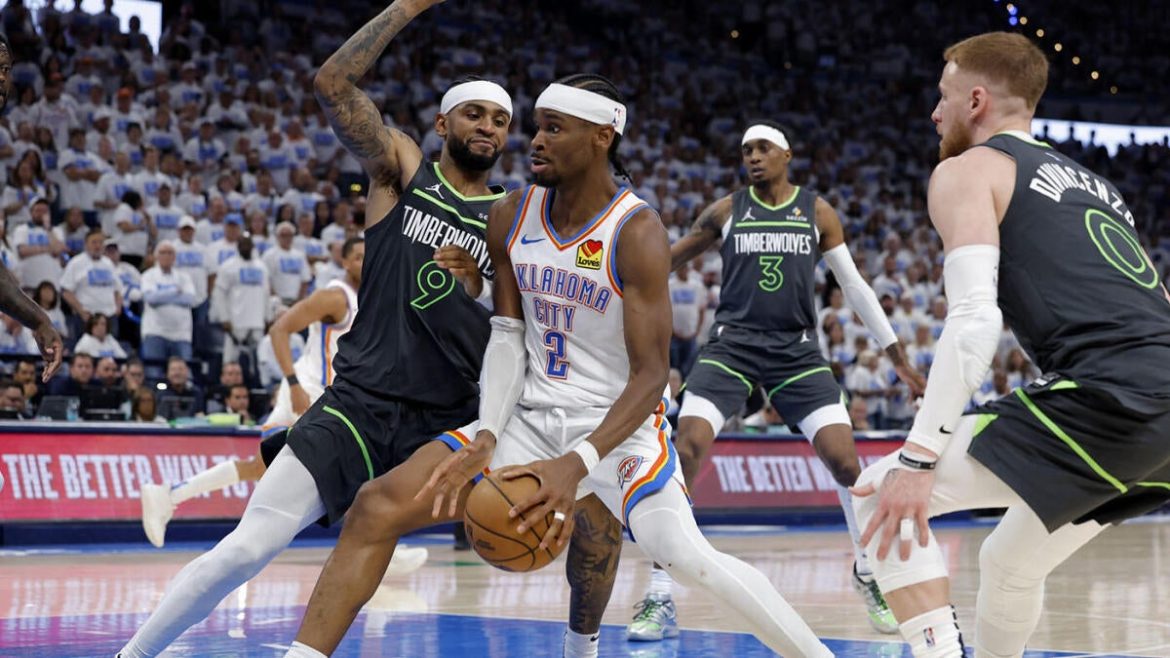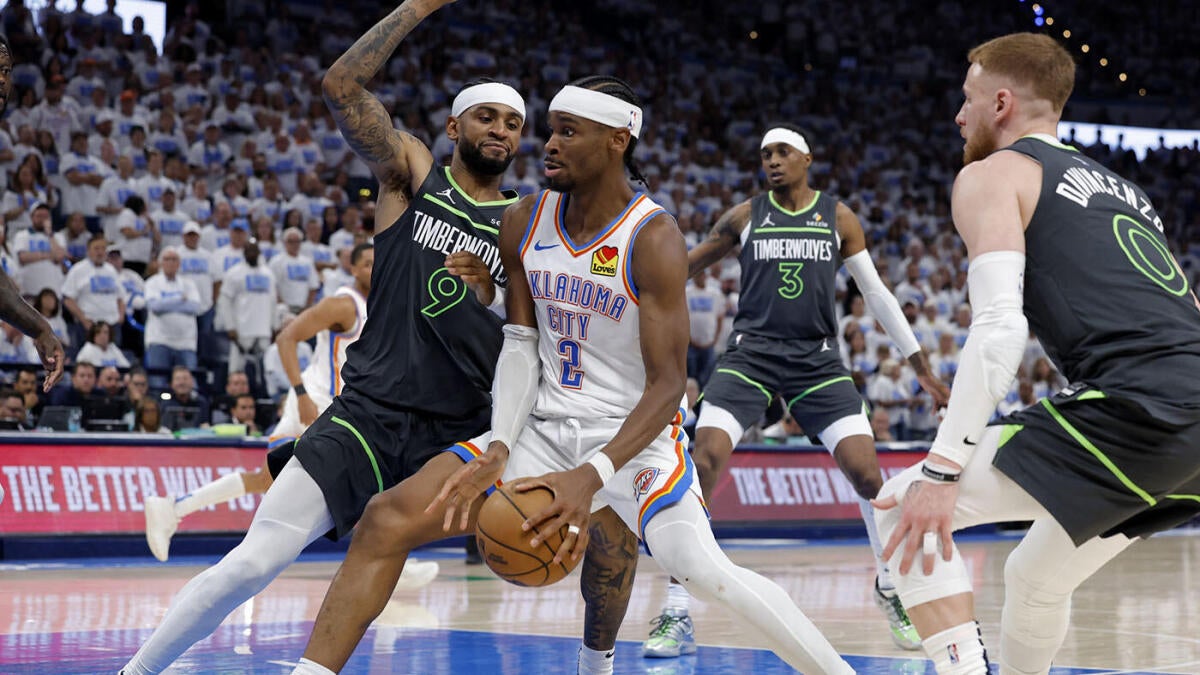The ongoing Western Conference Finals series between the Minnesota Timberwolves and the Oklahoma City Thunder has stirred intense discussion around the officiating, particularly the treatment of Thunder star Shai Gilgeous-Alexander (SGA) in terms of foul calls. This analysis unpacks the complex dynamics at play, highlighting coaching perspectives, player reactions, and the larger context of playoff basketball officiating.
Shai Gilgeous-Alexander’s Foul Draw and Its Impact
SGA’s ability to consistently draw fouls has become one of the defining storylines of this series. According to Timberwolves coach Chris Finch, it is an accepted reality that Gilgeous-Alexander will receive what Finch described as “friendly whistles.” In Game 1 of the Western Conference Finals, SGA was sent to the free-throw line 14 times, underscoring his dominance in this aspect. Over the season, Gilgeous-Alexander averages 8.8 free throw attempts per game—second only to Giannis Antetokounmpo, marking him as an elite scorer who excels at attacking the paint and drawing contact.
Finch’s acknowledgment that “you can’t really touch Shai” points to a frustration borne not only out of the physicality allowed in playoff basketball but also out of the protection that star players often receive from referees during critical moments. This trend has generated a sense of helplessness among Timberwolves players, who find it challenging to guard Gilgeous-Alexander effectively without risking foul trouble or giving him more free throws.
Timberwolves’ Response: Mental Resilience and Tactical Challenges
Despite these challenges, Chris Finch praised the Timberwolves’ mental toughness after the fiercely contested overtime victory. The team’s ability to fight through refereeing inconsistencies and aggressive play was highlighted as a key element of their competitiveness, though Finch also noted how difficult it is to counter the Thunder’s style of play, which commits a high volume of fouls.
Anthony Edwards, Minnesota’s budding star, openly expressed frustration at the favorable calls SGA receives. Edwards described the challenge of defending a player “you can’t touch any time of the game,” emphasizing how difficult it is to shut down an opponent who benefits from such officiating leniency. Edwards’ comments underscore a palpable tension within the Timberwolves squad, with players feeling aggrieved by what they perceive as unfair advantages awarded to the Thunder’s star guard.
The Broader Officiating Landscape in the Playoffs
The Thunder-Timberwolves series has become part of a larger conversation about refereeing in the NBA playoffs. Fans, analysts, and commentators have noted an increased allowance for physical defense, making it even more critical how referees discern legitimate defense from fouling or flopping.
Some voices, including commentators and rival coaches, have pointed out that Gilgeous-Alexander’s reputation for drawing fouls contributes to the referees’ tendency to call more favorable whistles for him. This phenomenon—whereby a player’s established reputation affects officiating decisions—fuels debate about the consistency and fairness of foul calls.
In addition, the presence of other talented players such as Anthony Edwards also complicates the narrative, as both players sometimes seek to “bait” favorable calls, adding layers to the strategic and psychological battles on the court.
Player Behavior and Psychological Tactics
SGA’s style of play involves aggressive drives to the basket combined with an acute sense of contact, sometimes drawing accusations of flopping to garner whistles. The Timberwolves players and coaching staff are frustrated by what they see as excessive favoritism, which can shift momentum and affect game outcomes. This has led to moments of visible tension, with Edwards even receiving a technical foul after a confrontation related to foul calls on Gilgeous-Alexander.
However, SGA himself refrains from blaming referees, maintaining a professional stance focused on continuing to attack the paint regardless of whistles. His confidence amid the scrutiny shows strong psychological resilience, a critical component of his success.
Tactical Adjustments and Future Outlook
Minnesota’s coaching staff is actively seeking strategies to counter SGA’s foul-drawing prowess, though Finch notes the difficulty in adjusting to a player who is not only a dynamic scorer but also adept at exploiting officiating tendencies. The Timberwolves’ tactical efforts include limiting Gilgeous-Alexander’s shooting efficiency and disrupting the Thunder’s offensive rhythm, yet the foul calls remain a substantial hurdle.
As the series progresses, how both teams and referees adapt will be crucial. The Thunder thrive on aggressive plays and drawing fouls, while Minnesota must balance physical defense with discipline to avoid excessive fouling themselves, especially in a series that is as tightly contested as this one.
Conclusion: Officiating, Strategy, and the Thin Line in Playoff Intensity
The narrative surrounding Shai Gilgeous-Alexander’s ability to attract favorable foul calls encapsulates many of the complexities of NBA playoff basketball—where star power, officiating discretion, and competitive intensity intersect. The Timberwolves’ honest frustration, voiced by coaching staff and players alike, reflects the challenge of protecting one’s competitive integrity when officiating appears to favor an opponent’s style of play and reputation.
Nonetheless, the mental toughness exhibited by Minnesota, the leadership shown by both teams’ stars, and the evolving tactical battles suggest that this series will continue to be a compelling showcase of skill, strategy, and psychological grit. The officiating debate, while central, remains part of a broader drama that captures the relentless pursuit of victory in high-stakes basketball.





